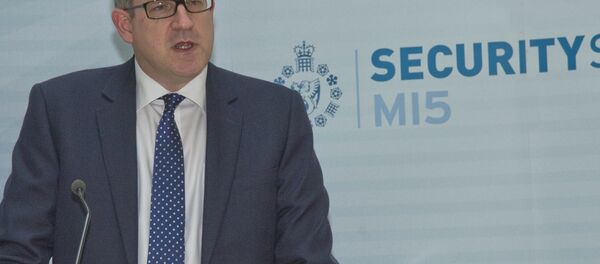The UK government announced on November 4 that its intelligence agencies – GCHQ, MI5 and MI6 – have gathered 'chatter' which pointed to the fact that the A321 was blown out of the sky by an explosive device planted in the hold either through lack of tight security at the airport or by a rogue employee.
Security sources have told Sputnik that Britain’s intelligence services intercepted Islamic State messages between Syria and Egypt using the Five Eyes network of satellites as well as intercepts from mobile phones, Skype, email, text or internet chat rooms.
These are exactly the methods exposed by Edward Snowden that led to a global outcry over privacy and human rights and the UK Government’s prominent admission of the use of intelligence will play right into the hands of those pressing for a new Investigatory Powers Bill – known as the Snoopers’ Charter – coincidentally published this week.
Sputnik understands that the UK intelligence agencies undertook several sweeps of sigintel (signals intelligence) from the moment the aircraft was downed. Over the following days – based on ground intelligence and working with its Five Eyes partners – the US Canada, Australia and New Zealand – it ran back through intercepts between Syria and Egypt.
New security measures have been put in place at Sharm el-Sheikh which mean British tourists can begin flying home tomorrow.
— David Cameron (@David_Cameron) November 5, 2015
The Five Eyes intelligence-sharing alliance operates a system of satellites which are used to intercept huge quantities of data that both the US National Security Agency (NSA) and Britain’s GCHQ analyze and convert into intelligence leads.
The British government this week unveiled its draft Investigatory Powers Bill, which critics say gives the intelligence agencies carte blanche to continue much of what Snowden revealed.
The #snooperscharter is here, and it's as bad as expected https://t.co/9xgRIverg1 pic.twitter.com/Xj3fTztPtz
— The Conversation (@ConversationUK) November 6, 2015
The fact that the UK authorities have made so much of its intelligence capability over the A321 crash will be seen by many as justification for the new legislation and the extension of snooping powers in the name of anti-terrorism and public security measures.
Snowden’s Revelations
Snowden disclosed in 2013 that the NSA was running was widely tapping internet data globally under a program called PRISM and that the UK’s surveillance agency, GCHQ, had access to it under the Project Tempora program.
PRISM was first publicly revealed in The Washington Post and The Guardian, based on allegations by Edward Snowden who had been a National Security Agency contractor. He alleged that the program involved the widespread data-mining with the involvement of Microsoft, Yahoo!, Google, Facebook, YouTube, Skype and AOL. These reports were all vigorously denied by all the web companies at the time.
Snowden claimed that Britain's signals monitoring center has been tapping fiber optic cables in a data-harvesting scheme called Project Tempora. He alleged that large volumes of data are drawn from fiber optic cables for up to 30 days so that it can be sifted and analysed.
Snowden’s allegations led to mass protests over human rights and led to the US, the UK, Germany, France and the European Union having to bring in new legislation to protect personal data, while allowing intelligence agencies to continue to fight terrorism.






